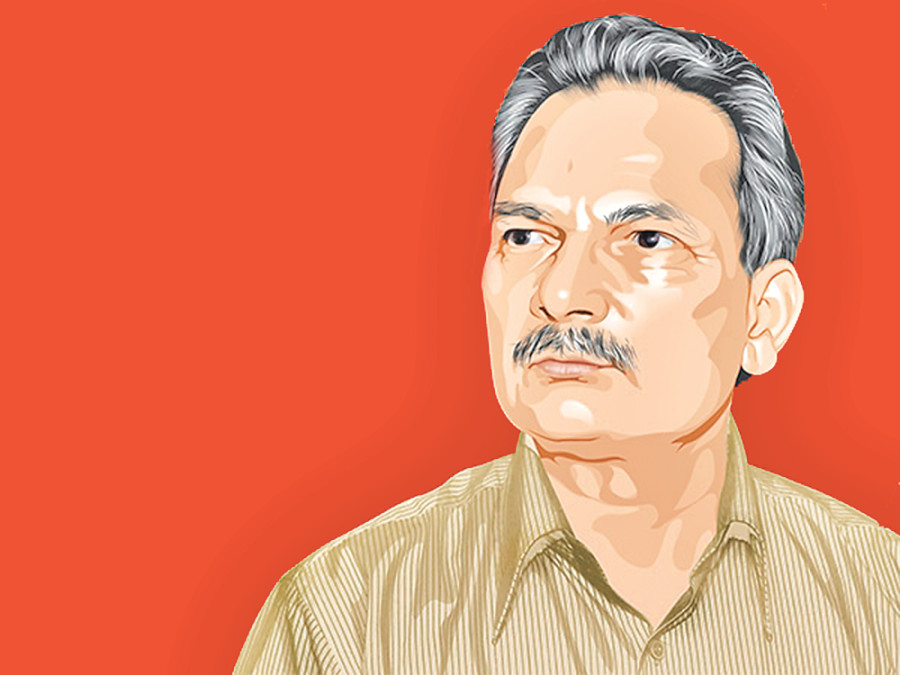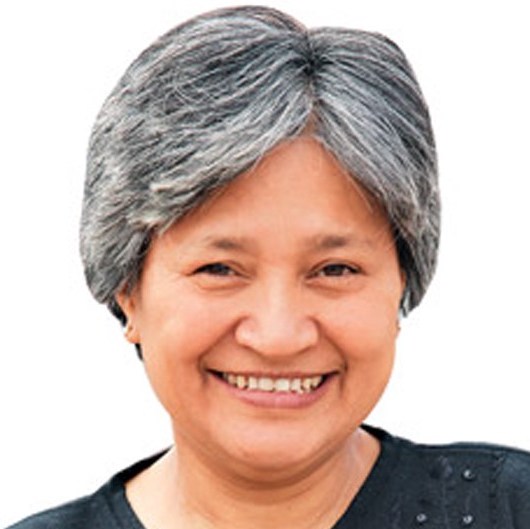https://kathmandupost.com/opinion/2016/06/12/how-new-is-naya-shakti-nepal
Constitution should be neither celebrated nor condemned; we need to implement it, but simultaneously make it more inclusive
Hisila Yami
The launch of the Naya Shakti Nepal (NSN) party today in Dasharath stadium in Kathmandu needs to be understood against this background. It is not only a new political party but also an alternative movement, which shall usher in a new era of national capitalism. When the concept of a new party in the name of Naya Shakti Nepal was floated, many people sighed: Here comes another Maoist party! Some went on to say, here comes A..B..C…and now D. Meaning here comes A-Akikrit Maobadi, B-Baidhya Maobadi, C-Chand Maobadi and now D-Dr Baburam Maobadi! But that is not the case.
The NSN’s mission is fundamentally different as it did not start as a readymade split party wherein a rebel leader steps out of the mother party with his/her set of supporters and forms a readymade set of team members and documents using old methodology. The NSN is a mission to start a new methodology of political organisation (participatory and based on inclusion and proportional representation), leadership (fixed term for leadership), and new plans (based on immediate national needs and their implementation).
Five dimensions
Politically speaking, the party will neither follow liberal democracy nor state socialism but it will support inclusiveness and participatory democracy leading to enhanced socialism using dialectical and historical materialism to achieve its goal. The democracy exercised by the NSN will not only be procedural but also participatory.
Economically speaking, the NSN aims at achieving rapid industrialisation that avoids structural crises of both neo-liberalism and orthodox state socialism, both of which are not sustainable in the long run. The NSN is for an economic revolution with social equity.
Socially speaking, it will provide proportionate representation in the party to the three major clusters of nationalities, the Khas-Arya, the Tibeto-Burman or indigenous nationalities and the Madhesi-Tharu.
Culturally speaking, it is going to adopt a new political culture of transparency, respecting the value of labour and unity in diversity. It will encourage all cultures, which will help in doing away with the remnants of feudal relations and values, and unleash the productive forces of society to move it towards enriched socialism. The society we are trying create will promote individual initiative and ensure social security.
Ethically speaking, we want a positive mindset in Nepali politics. We believe the Nepali Congress mainly played its role in defeating the Rana regime, the present UML mainly played its role in weakening the autocratic Panchayat system and the Maoists mainly played their role in decisively defeating monarchy. However, in the present context, all these parties with their old methodology of leadership, party functioning and structure and plans are not able to address the challenges of the 21st century—the demand of entering a new stage of development where the productivity of all citizens need to be unleashed to create a society with equal opportunities for all.
Growth and inclusion
The present constitution has been achieved through a long struggle; however, it has yet not completely addressed the delineation of provinces, identity of single women and empowerment of the Dalits. Thus, its promulgation should neither be celebrated nor condemned. We need to implement it, but simultaneously make it more inclusive.
The party is also trying to galvanise various forces and tendencies that are needed to make this country prosperous and inclusive. It also wants to create the base for a new mode of production. Hence it is including politicians with expertise on various fields, along with professional politicians to make sure that it comprises not only politically oriented but also development oriented leaders.
Our aim is to move away from the traditional functioning of the political parties in the country, which is still monolithic, centralised in structure, power-centric and not inclusive enough. We believe that inputs from technology enhance political moves. We believe in unity in diversity. We are for participatory democracy at every stage. We are for using the state not as a means to stay in power for the sake of power, but for transformative politics to institutionalise the changes brought about by innumerable movements.
To put it succinctly, the NSN represents five ‘s’s : Samriddha Nepal (Prosperous Nepal), Samanupatic Nepal (Proportionate Nepal), Swadhin Nepal (Sovereign Nepal), Sushashit Nepal (well-governed Nepal) and Samunnat Samajwadi Nepal (enriched socialist Nepal).
Just as any new political undertaking, even the NSN will be fraught with many challenges. The biggest challenge however will be to strike a balance between fast economic growth and inclusion. Concentrating only on economic issues demands a highly centralised, efficient structure, which leaves behind the agenda of inclusiveness. And if one concentrates on creating an inclusive state, it delays economic growth. The need is to arrive at a practical working arrangement whereby the two goals become more complimentary and less contradictory.
The hallmark of the NSN its openness to all ideas. In our upcoming session in Kathmandu, we will hold open discussions and take suggestions until the next national convention, which will be organised within a year.
Hence the Naya Shakti Nepal is sincerely trying to be naya, both in its content and form.
Yami, former tourism minister, is associated with Naya Shakti Nepal. She can be contacted at hisila.post@gmail.com
https://kathmandupost.com/opinion/2016/06/12/how-new-is-naya-shakti-nepal

